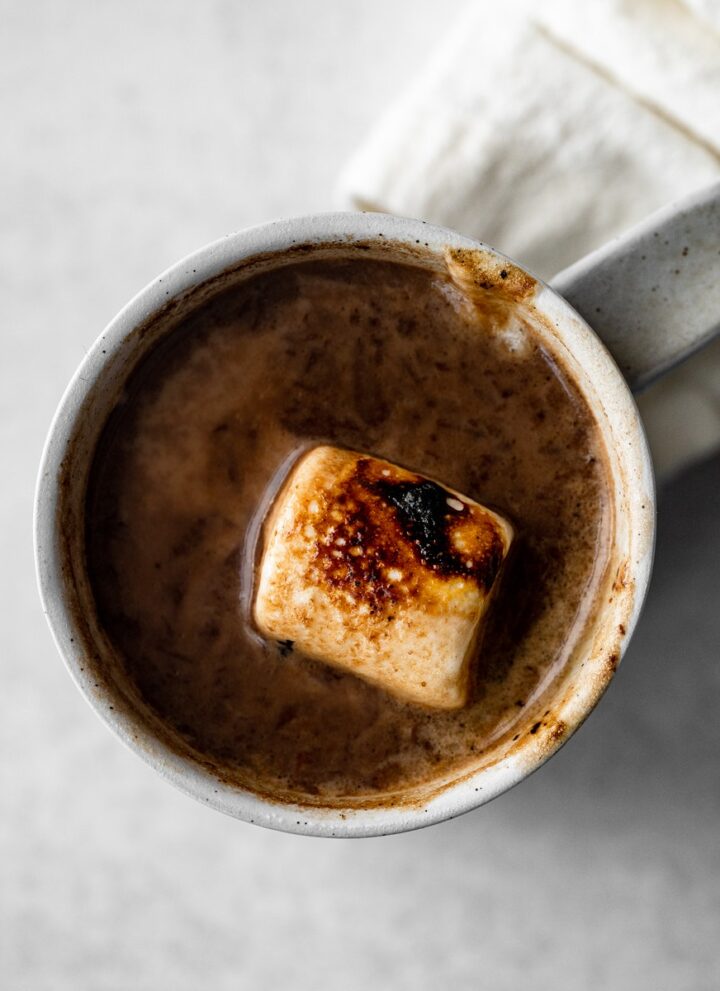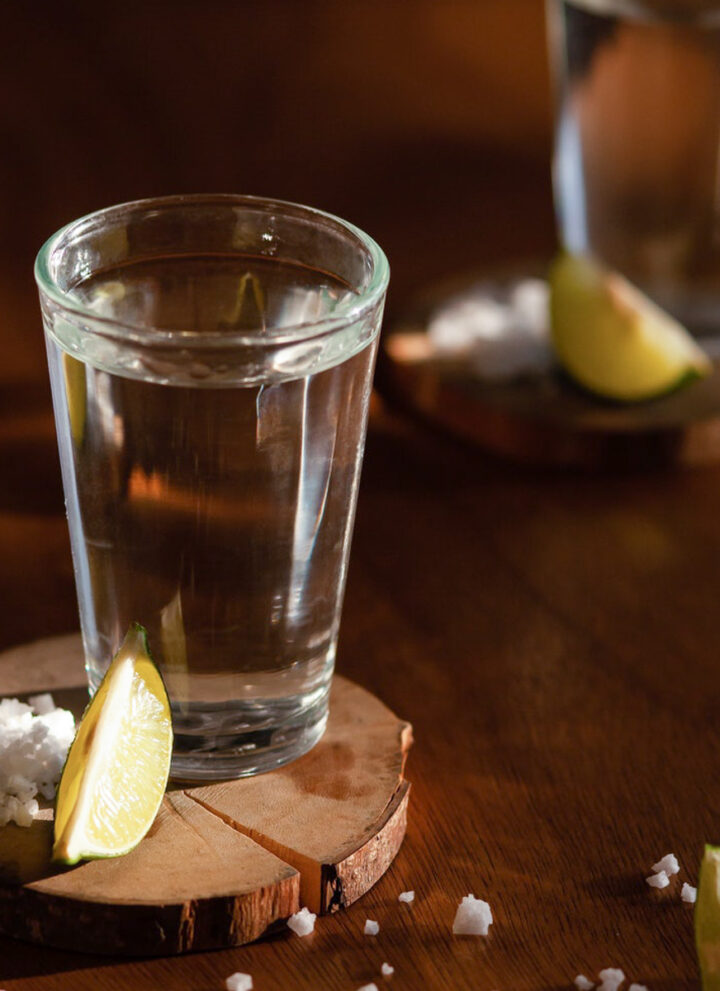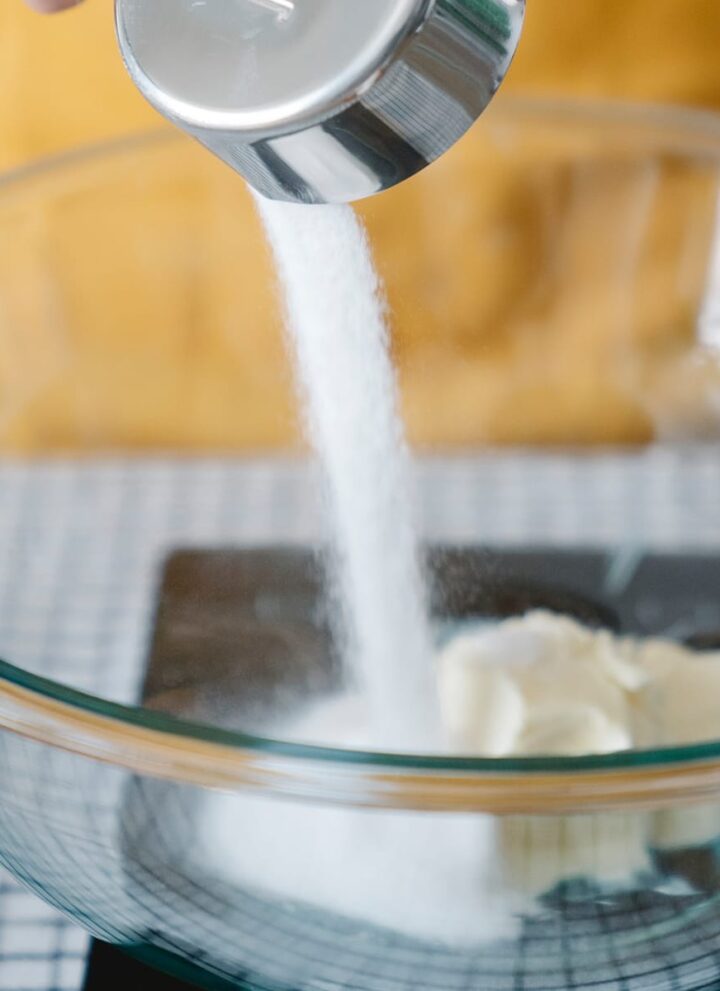For people who follow a vegan diet, it might be unclear whether certain foods, which seem plant-based, are genuinely vegan. So, is guar gum vegan?
Guar gum is one of those ingredients that you see on a food label and wonder what it even is and why it’s in so many foods.
In this post, we answer not only the question "Is guar gum vegan?", but we also look at other questions such as "Is guar gum halal?", "How is guar gum made?" and more. We also discuss possible health risks and benefits, how to use it, where to buy it, and more.
Table of contents:
Jump to:
- 🤔 What is guar gum?
- 🌱 Is guar gum vegan?
- 💭Is guar gum halal?
- 🌾 How is guar gum made?
- 🧐 What is guar gum used for?
- 👩🍳 Usage of guar gum in cooking and baking
- 🔁 Why is guar gum a replacement for gluten?
- 🌿 Health risks and benefits of guar gum
- 🛒 Where can can I buy guar gum powder?
- 🔄 Guar gum substitutes
- 🤓 Conclusion
- 💬 Reviews
🤔 What is guar gum?
Guar gum is a substance from the seeds of the plant cluster bean or guar bean. It is commonly used in the form of a powder and added to various products in industries like food, medicine, paper, textiles, explosives, oil drilling, and cosmetics.
The reason it's so useful in these industries is because it can create strong bonds with water molecules. The scientific name for that is hydrocolloid. A hydrocolloid is a molecular substance that forms a gel when in contact with water.
Simply put, guar gum is mainly used to make things thicker and more stable. It's like a binder ingredient that keeps things together.

🌱 Is guar gum vegan?
Yes! Guar gum is vegan and vegetarian. It does not contain animal products and no animal-based ingredients are used in its production.
However, it's always a good idea to check product labels and verify with manufacturers to ensure there are no additional non-vegan additives or processing agents.
💭Is guar gum halal?
Yes, guar gum is generally considered halal.
However, it's always a good idea to check the specific manufacturing and processing methods used by the supplier or manufacturer to ensure that no non-halal ingredients or processes are involved.
If in doubt, you may want to consult with a religious authority or organization that provides halal certifications.
🌾 How is guar gum made?
You might be wondering, what is guar gum made from and how is it made?
Guar gum comes from the seeds of a plant called guar or guar bean. This plant is tough and can survive in arid places (dry and warm areas, where it doesn't rain a lot).
People have been growing it for a very long time in countries like India and Pakistan.
When picking the seeds from the guar plant, they need to follow a few steps to get guar gum.
Here's a simple breakdown:
- Growing the Plant: First, farmers need to grow the guar plant.
- Harvesting the Seeds: When the guar bean plant has grown, they collect the seeds.
- Making Guar Gum: Now comes the interesting part!
- They break the seeds and separate a part called the endosperm.
- The endosperm is then treated to make something called guar gum powder.
- Using Guar Gum: This guar gum powder is not just for eating; it's used in many different ways! In food, it helps to make things like ice cream, sauces, and even cake mixes. However, guar gum is also used in industries such as pharmaceuticals, oils and gas, paper manufacturing, explosives, mining, personal care products, and even in detergents and cleaners.
- Extra Stuff: From the guar plant, they also get other things like cattle feed (called guar meal) and use the remaining parts for different purposes.
So, in simple terms, guar gum is a special ingredient that comes from a plant. People use it to make food taste good and stay fresh, and they also find other uses for it in different industries.
🧐 What is guar gum used for?
Guar gum is used in many different industries. In the food industry it is mainly used in foods as a stabilizer, binder, fiber source, and/or to extend shelf life.

👩🍳 Usage of guar gum in cooking and baking
Guar gum is a versatile thickening agent that is commonly used in cooking and baking. Here are some examples of how you can use guar gum in different recipes:
- Baking Gluten-Free Goods:
- Add guar gum to gluten-free flour blends to improve the texture and elasticity of baked goods like bread, cakes, and cookies.
- Ice Cream and Frozen Treats:
- Use guar gum in homemade ice cream or frozen desserts to prevent ice crystals from forming and improve the smoothness and creaminess of the final product.
- Sauces and Gravies:
- Add guar gum to sauces and gravies as a thickening agent instead of starch or roux.
- Salad Dressings:
- Incorporate guar gum into salad dressings to prevent separation of ingredients. It may contribute to a creamier and more stable dressing, or functions as an oil substitute.
- Soups and Stews:
- Use guar gum to thicken soups and stews, especially in recipes where a gluten-free option is preferred. It provides a consistent and velvety texture.
- Homemade Nut Butters:
- Incorporate guar gum into homemade nut butters to improve the spreadability and prevent the separation of oil.
- Puddings and Custards:
- Use guar gum in pudding and custard recipes to enhance the thickness and creaminess of the final product.
When using guar gum, it's important to start with a small amount and gradually increase as needed. Keep in mind that it is a potent thickening agent.
Follow the recommended guidelines on the packaging or recipe, and be mindful not to overuse it. Over usage might affect the texture and taste of the final dish.
🔁 Why is guar gum a replacement for gluten?
Guar gum is often used in gluten-free baked goods as it provides structure and stabilization, making it a helpful replacement for gluten.
Additionally, it’s all-natural! There are no chemicals added to its production process, making it less costly.
Generally, it often provides better results than other gluten-free baking alternatives.
🌿 Health risks and benefits of guar gum
You might be wondering is guar gum bad for you? Generally, a quick answer is, no, guar gum is not bad for you.
The ingredient has been declared safe by the FDA and the EU.
Risks
Health risks associated with guar gum are not well-established, but some concerns include:
- Toxicity: According to the FDA and the EU, guar gum, as a food additive in reasonable and approved amounts, is generally safe. However, when used in high doses, such as in specific diet pills that contain guar gum, adverse events may occur.
- Inflammation: There are conflicting findings on whether guar gum may cause inflammation, particularly in digestive conditions like Irritable Bowel Syndrome (IBS) or Crohn’s disease. However most studies were done in mice and have shown varied results, and there is limited research on humans. Some studies in mice suggested increased inflammation, while others showed reduced inflammation.
- Abdominal Discomfort: Some people may be more sensitive to guar gum, experiencing abdominal discomfort such as gas and bloating, especially at higher doses.
What about IBS? Is guar gum low in FODMAP? According to Monash University, guar gum is not considered high in FODMAPs.
However, it's important to note that individual tolerance to certain foods can vary, and some people with IBS may still experience digestive discomfort with guar gum or other gums.
Benefits
It's important to note that guar gum is also connected with potential health benefits. Mainly due to its classification as a soluble fiber.
It may help manage type 2 diabetes by slowing digestion, keeping individuals fuller after meals, and preventing blood glucose spikes. Additionally, guar gum may contribute to lowering cholesterol levels by preventing the reabsorption of bile acids in the intestine.
While the health benefits are supported by research, the amounts of guar gum typically found as a food additive in packaged items are small and might not provide the same benefits observed in research studies.
It is also important to keep in mind that research continues to develop in this area! If you are considering guar gum supplement/powder we recommend talking to your doctor or dietitian.
Overall, a plant-based diet rich in whole, minimally processed foods remains a more reliable way to obtain essential nutrients and improve your health.
If you have specific health concerns or sensitivities you should always consult with a healthcare professional, in addition to your own research.
🛒 Where can can I buy guar gum powder?
Guar gum is commonly available in various grocery stores, health food stores, and online retailers such as Amazon.
Brands that sell guar gum:
🔄 Guar gum substitutes
Are you looking to substitute guar gum? There are several alternatives, depending on the specific function of guar gum in a recipe.
Here are some of the most common substitutes:
- Xanthan Gum: Xanthan gum is a popular substitute for guar gum, especially in gluten-free baking. It has similar thickening and stabilizing properties.
- Cornstarch: Cornstarch can be used as a thickening agent in place of guar gum. It is often used in sauces, soups, and gravies.
- Arrowroot Powder: Arrowroot powder is another thickening agent that can replace guar gum in recipes. It works well in both hot and cold preparations.
- Agar Agar: Agar agar is a plant-based thickening agent derived from seaweed. It is commonly used in vegan and vegetarian recipes and can replace guar gum in some applications.
- Psyllium Husk: Psyllium husk, especially ground psyllium, can be used as a binding and thickening agent in gluten-free baking.
- Chia Seeds or Flax Seeds: When mixed with water, chia seeds or ground flax seeds create a gel-like consistency, making them suitable for some thickening applications. Although they are less effective than guar as binding agents, they are extremely popular in gluten-free and vegan baking, due to their health benefits and accessibility.
- Carrageenan: Carrageenan is a seaweed extract used as a thickening and stabilizing agent.
When substituting for guar gum, it's essential to consider the specific role guar gum plays in the recipe. Each substitute may have different properties, so it's recommended to experiment with small quantities to achieve the desired results.
Please keep in mind that the effectiveness of substitutes can vary depending on the recipe and the desired outcome.
🤓 Conclusion
Guar gum functions as a helper ingredient made from the seeds of the guar plant. Its powder helps make things thicker and more stable.
People use it not just in foods, but also in things like medicine, and even in making clothes and paper!
It's vegan, gluten-free, and halal-friendly, but if someone doesn't want to use guar gum, there are other options available, such as xanthan gum, cornstarch, flax seed and more.
I hope this post was informative and helpful! Let me know what you think in the comments below.
If you are interested in this topic, make sure to explore our blog. We share easy vegan recipes, and vegan lifestyle tips and cover more “Is It Vegan” questions!





Comments
No Comments